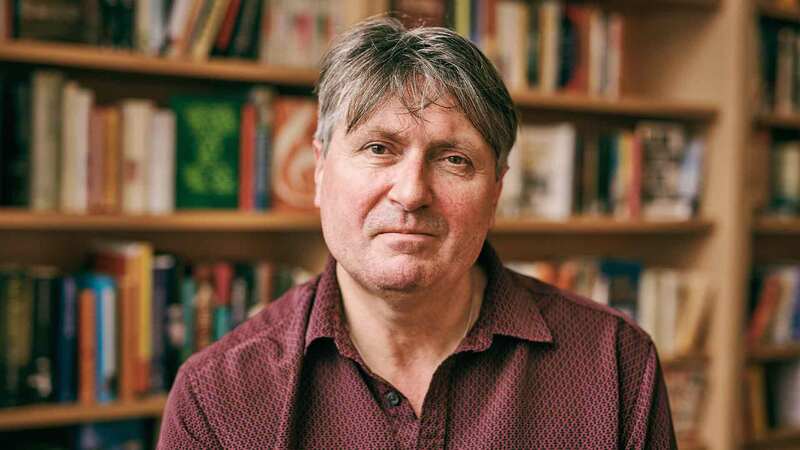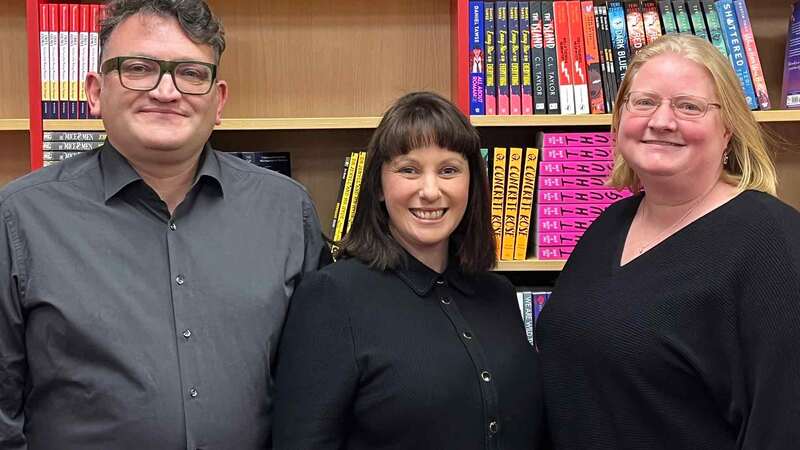You are viewing your 1 free article this month. Login to read more articles.
The gold standard
I was very honoured to be chosen as the 11th Waterstones Children’s Laureate and to be trusted to fight for books and children’s interests with passion, conviction and action. On appointment, I launched my giant “to do” list in the form of the Laureate Reading Charter, which boils down to two super-simple key messages.
Point number one: books and reading are magic.
Point number two: this magic must be made urgently available to absolutely everyone.
I certainly don’t need to convince anyone reading this special edition of The Bookseller of the reasons for this urgency: we know from decades of research that a reader for pleasure is more likely to be happier, healthier, to do better at school, and to vote—all irrespective of background. Reading for pleasure is a bigger indicator of a child’s educational success than their parent’s socio-economic status. And we also know that school libraries are an essential tool in facilitating this opportunity: a well-resourced library has a transformative impact on a child’s life opportunities, and this is especially marked for those eligible for free school meals.
I was delighted by the widespread support for the launch of my Life-changing Libraries campaign and open letter to the Prime Minister, which I sent with the backing of many literacy and reading organisations (such as BookTrust and the National Literacy Trust) and all former laureates. There has been so much enthusiasm for our call to the government to place primary school libraries at the heart of its long-term response to the pandemic with a ringfenced, yearly investment of £100m.
But I was also struck by how many people were shocked that we even need to make this request.
Wide of the mark
What’s clear from this reaction is that many people assume that all primary schools have libraries and that these are well-stocked and resourced. But this is simply not the case. The recent Great School Libraries report found a lack of space, resource and expertise; one in eight primary schools has no library space at all. Worse still, schools with a higher proportion of children on free school meals are more than twice as likely not to have access to a designated library space. So the children that need books most—particularly those from the poorest communities, worst hit by the pandemic—are the very children who are least likely to have them. This cannot be fair.
How can a child become a reader for pleasure if their parents or carers cannot afford books and their primary school has no library—or if that library is woefully insufficient? The answer is simple—it is impossible—and we desperately need the government’s support to address this immense inequality.
Over the past few months, we have been working hard behind the scenes to bring six pilot school libraries to life and I have now officially opened five of the six spaces—the final library, at Skerne Park, Darlington, will be opened next week. The libraries look absolutely glorious, exciting and modern and relevant to the children’s lives, and are set to spotlight the four pillars of a successful “gold standard” school library: space, book provision, expertise and whole-school and parent involvement. We will be collecting research and data about how the libraries affect the literacy and happiness levels of the children within these schools.
Making an impact
It was deeply moving to hear how much it meant to the schools and the communities in which we are setting them up. I asked a little boy: “What was it like before, when you didn’t have a library?” Answer: “Well, it meant I had to read the same book over and over again.” I asked one of the headteachers what this meant to them: “I can’t tell you what this means, not just to us in this school but to the whole community. This is an area where all the schools, primary and secondary, are in special measures. This library offers some hope, in an area which has never recovered from the miners’ strike, 36 years ago.”
It is these children, their families and their communities whose voices are not always heard, which is why I am using my platform as Waterstones Children’s Laureate to speak out on their behalf. The situation is at critical tipping point, with millions of children—particularly those from the poorest communities, worst hit by the pandemic—missing out on opportunities to discover the life-changing magic of reading.
The government has committed to levelling up this country and creating a fair playing field for all children. Placing primary school libraries at the heart of its long-term education recovery, with a yearly, dedicated boost of £100m, would change lives. It would help children whose future now lies in the balance. This is not something that can wait. We must act now.
And so, again, I urge the government to take this positive step and invest in our children’s and our country’s future.
Put simply, libraries change lives. Literacy changes lives.
Cressida Cowell MBE is the Waterstones Children’s Laureate, and a children’s author and illustrator









